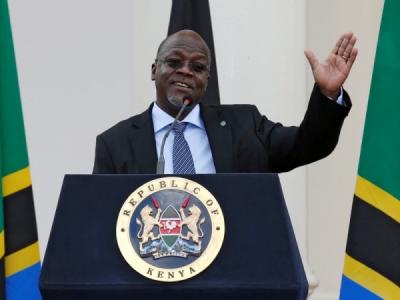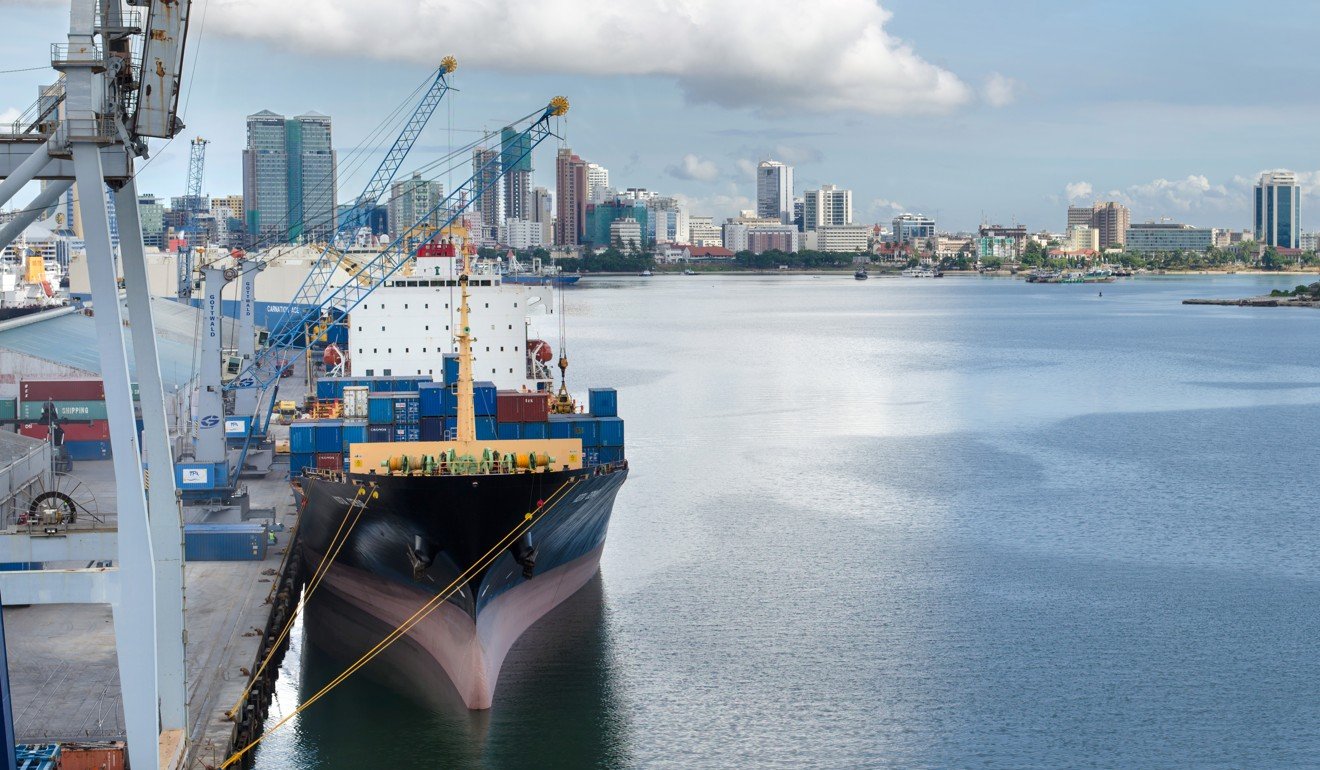
Posted on July 14, 2019
- Negotiations to restart development of deep water port ‘ongoing’, Mbelwa Kairuki says
- Project was halted last month by African nation’s president over problems with terms of deal
Discussions are ongoing to get the China-backed US$10 billion Bagamoyo Port project in Tanzania, which was “suspended indefinitely” by the east African nation’s president because of disagreements over the terms, back on track, its ambassador to Beijing said on Thursday.
The troubled project was “not off the table” and the remaining issues could be sorted after consultations between the Tanzanian government and investor China Merchants Port Holdings, Mbelwa Kairuki told reporters during a visit to Hong Kong.
Of the 29 issues still to be resolved, four might require parliamentary action – such as formulating a legal mechanism for the operation of the special economic zone alongside the port – he said.
“The Bagamoyo project is, there’s a negotiation, which [is] ongoing between the government and the investor,” Kairuki said. “Some of the issues that the investor is proposing don’t make sense, but we hope that through engagement … we will get to understand better.
“The good thing is the investor is ready to engage, and the government is willing to as well.”

China has also invested in the redevelopment of the port of Dar es Salaam. Photo: Shutterstock
The envoy’s remarks came after Tanzanian President John Magufuli last month rejected the conditions of the deal for the project, which is being developed under China’s Belt and Road Initiative and is intended to be Africa’s largest deep water port.
Magufuli described the terms – which include long tax breaks for investors in the special economic zone, halting the expansion of other ports and the loss of some sovereignty – as “exploitative and awkward”, according to a report published by Tanzanian newspaper, The Citizen.
China Merchants Port Holdings did not respond to a request for comment.
Beijing has steadily increased its investments and trade with African countries in recent years. Chinese investments in Tanzania topped US$7 billion in 2018 while trade between the two countries was US$3.98 billion, according to Xinhua.
But that increase in funding has led to charges, including from the US, that Beijing is using its belt and road plan to gain political leverage in Africa by saddling developing nations with debts they cannot repay. The projects have also been criticised for their lack of transparency, feasibility and sustainability.

Bagamoyo could one day host Africa’s largest deep water port. Photo: Alamy
But Kairuki hit back at accusations made by “Western media” that the Bagamoyo Port project was a debt trap.
“They are talking about a debt trap – you know, this is pure investment,” he said. “This is investors bringing capital. The government is not bringing a single cent. So how can it be a debt trap? Maybe an investment trap. And what’s wrong with investment? Investment brings jobs, it brings capital, it brings technology, it brings everything.”
Other Chinese projects in Tanzania include the expansion of Dar es Salaam port in the country’s capital and a railway from Dar es Salaam to Rwanda, Burundi and Congo.
Kairuki was speaking at Hong Kong Polytechnic University, where faculty members and local businesspeople met to discuss an upcoming trip to Tanzania to explore investment opportunities there.
“The Chinese are welcome,” the ambassador said. “Chinese enterprises that have invested in Tanzania have created over 100,000 jobs. They are employing local people, they are transferring technology.”
Although there had been cases of individuals violating the law, that should “not be the basis for defining the relationship between China and Tanzania, or China and Africa for that matter”, Kairuki said.
Source: scmp.com





